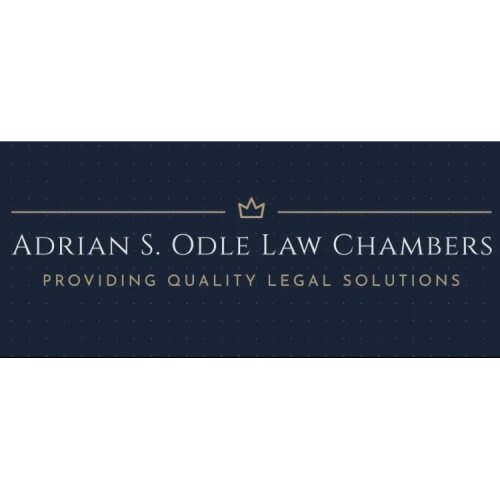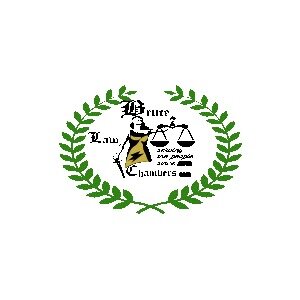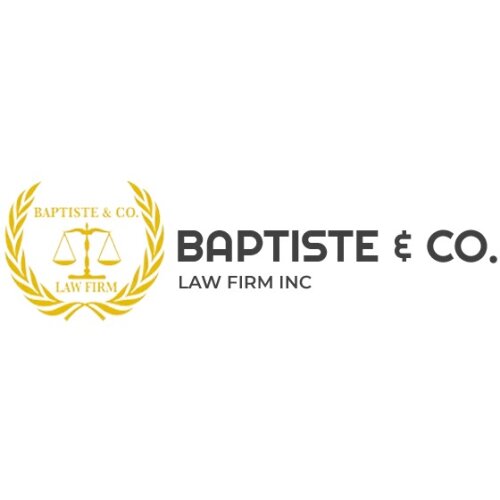Best Restructuring & Insolvency Lawyers in Kingstown
Share your needs with us, get contacted by law firms.
Free. Takes 2 min.
List of the best lawyers in Kingstown, Saint Vincent and the Grenadines
About Restructuring & Insolvency Law in Kingstown, Saint Vincent and the Grenadines
Restructuring and insolvency law in Kingstown, Saint Vincent and the Grenadines provides the framework for resolving financial difficulties faced by companies and individuals. This field of law deals with situations where businesses or individuals are unable to meet their financial obligations, and it outlines structured procedures for debt resolution, asset protection, and managing relationships between creditors and debtors. The goal is often to enable viable businesses to recover while ensuring fair treatment of creditors. Whether through restructuring debts, formal insolvency proceedings, or liquidation, these laws serve a crucial role in supporting the overall stability of the financial system and commercial sector in Saint Vincent and the Grenadines.
Why You May Need a Lawyer
There are various scenarios in which seeking legal advice concerning restructuring and insolvency can be vital in Kingstown:
- If your company is experiencing persistent financial distress and struggling to pay debts on time
- When you receive statutory demands or legal notices from creditors
- In cases where you are a director or shareholder and are unsure of your responsibilities during a financial crisis
- If you are a creditor seeking to recover payments from insolvent companies or individuals
- When negotiating with creditors or seeking to restructure existing debts
- If you are considering entering into arrangements such as debt workouts, administration, receivership, or liquidation
- To ensure that all statutory obligations are met and to protect your interests during board decisions or creditor meetings
- When you need assistance navigating the potentially severe consequences of insolvency, including asset protection and potential disqualification for directors
- For understanding cross-border insolvency issues, if your business or creditors are located outside of Saint Vincent and the Grenadines
Local Laws Overview
The legal landscape for restructuring and insolvency in Kingstown and the wider Saint Vincent and the Grenadines is shaped by several statutes and local judicial practices. The key legislation is the Bankruptcy and Insolvency Act, which establishes the procedures for both personal and corporate insolvency. The Companies Act also includes specific provisions related to company restructuring, winding up, and dissolution. Additional rules and guidelines may be issued by the Eastern Caribbean Supreme Court, which oversees significant insolvency matters locally.
Certain aspects that are particularly relevant in Kingstown include:
- Criteria for declaring insolvency for both individuals and businesses
- Appointment and roles of trustees, liquidators, or administrators
- Procedures for voluntary or compulsory liquidation
- Order of priority for payment of debts, including secured and unsecured creditors
- Impact of insolvency proceedings on existing contracts and pending lawsuits
- Requirement for full and honest disclosure of assets and liabilities
- Criminal penalties for fraudulent behavior or misconduct during insolvency processes
- Protocols for cross-border insolvency and cooperation with foreign courts or trustees
Navigating these laws requires expert knowledge to achieve the best possible outcome, emphasizing the importance of qualified legal assistance.
Frequently Asked Questions
What is the difference between restructuring and insolvency?
Restructuring refers to the process of reorganizing a company's finances with the goal of regaining profitability and avoiding insolvency. Insolvency is the situation where an individual or company is unable to pay debts as they become due, often leading to formal legal proceedings such as liquidation or bankruptcy.
How do I know if my business is insolvent?
A business is generally considered insolvent if it cannot pay its debts when they are due or if its liabilities exceed its assets. Legal tests and specific thresholds are detailed in local statutes such as the Bankruptcy and Insolvency Act.
What options are available for a company facing insolvency in Kingstown?
Options include formal restructuring or reorganization under court supervision, entering into arrangements or compositions with creditors, voluntary or compulsory liquidation, and in some cases, receivership.
Can I continue to trade if my company is insolvent?
Continuing to trade while insolvent can lead to serious consequences for directors, including personal liability for company debts. A lawyer can advise whether limited trading is permissible in certain restructuring scenarios.
What is the role of a liquidator?
A liquidator is an independent professional appointed to wind up a company’s affairs, realize its assets, pay creditors in accordance with local law, and dissolve the company.
How are creditors paid in an insolvency situation?
Payments are made according to a statutory order of priority. Secured creditors are usually paid first, followed by preferential creditors, unsecured creditors, and finally shareholders, if any funds remain.
Are directors personally liable for company debts?
Directors are generally not personally liable unless they have acted fraudulently, recklessly, or failed to fulfill their statutory duties. Insolvency laws impose certain responsibilities on directors during financial distress.
Can individuals file for personal bankruptcy in Saint Vincent and the Grenadines?
Yes, individuals who are unable to pay their debts can apply for bankruptcy through the court system, leading to the appointment of a trustee and the management of assets for creditor repayment.
What is the effect of insolvency proceedings on ongoing legal actions or contracts?
Insolvency proceedings can result in a stay of litigation or enforcement actions against the debtor and may impact the enforceability of contracts, depending on their terms and the stage of the insolvency process.
How long does the insolvency process typically take?
The duration depends on the complexity of the estate, the number of creditors, and whether the process is voluntary or court-driven. Simple cases may conclude in several months, while more complex insolvent estates may take years to resolve.
Additional Resources
If you require information or support regarding restructuring and insolvency in Kingstown, Saint Vincent and the Grenadines, consider the following resources:
- The Ministry of Legal Affairs, Saint Vincent and the Grenadines - Handles policy guidance and support for legal matters, including insolvency issues
- The Eastern Caribbean Supreme Court - Oversees insolvency proceedings and can provide procedural information
- Licensed insolvency practitioners and trustees in Saint Vincent and the Grenadines
- Local law firms specializing in corporate and insolvency law
- The Companies Registry - Offers guidance on corporate filings, winding up, and related company law procedures
Next Steps
If you believe you or your business may be facing financial difficulty, or if you have received notice of insolvency proceedings, it is essential to act quickly and seek professional advice. Gather all relevant financial documents, records of communication with creditors, and any legal notices or demands you have received. Contact a local lawyer who specializes in restructuring and insolvency law as soon as possible. Early intervention by qualified legal professionals can help protect your interests, identify practical solutions, and ensure compliance with all local legal requirements. Most importantly, prompt and informed decisions are key to achieving the best possible outcome during challenging financial times.
Lawzana helps you find the best lawyers and law firms in Kingstown through a curated and pre-screened list of qualified legal professionals. Our platform offers rankings and detailed profiles of attorneys and law firms, allowing you to compare based on practice areas, including Restructuring & Insolvency, experience, and client feedback.
Each profile includes a description of the firm's areas of practice, client reviews, team members and partners, year of establishment, spoken languages, office locations, contact information, social media presence, and any published articles or resources. Most firms on our platform speak English and are experienced in both local and international legal matters.
Get a quote from top-rated law firms in Kingstown, Saint Vincent and the Grenadines — quickly, securely, and without unnecessary hassle.
Disclaimer:
The information provided on this page is for general informational purposes only and does not constitute legal advice. While we strive to ensure the accuracy and relevance of the content, legal information may change over time, and interpretations of the law can vary. You should always consult with a qualified legal professional for advice specific to your situation.
We disclaim all liability for actions taken or not taken based on the content of this page. If you believe any information is incorrect or outdated, please contact us, and we will review and update it where appropriate.











